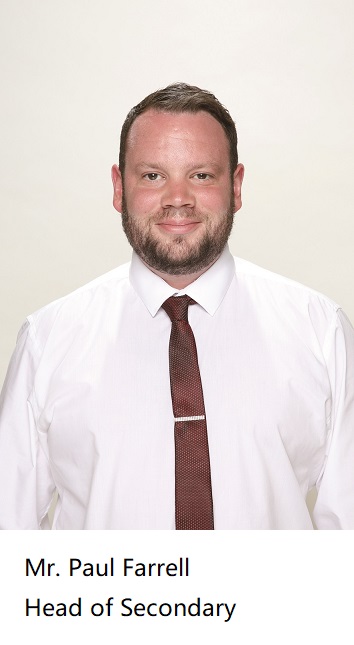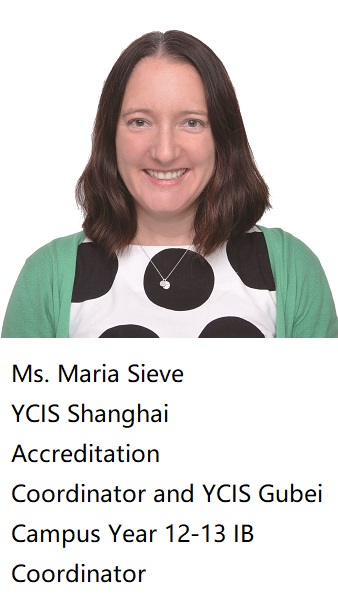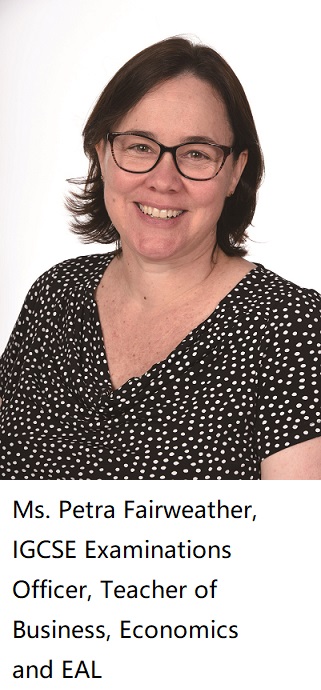Students studying at an international school will inevitably face the decision of which curriculum to follow: A Levels, Advanced Placement, International Baccalaureate (IB) or IGCSE. These are the most recognized pre-university education systems, and each has their advantages in developing a student's potential. There isn't one solution for all, as the best academic path for a student depends on their strengths and goals. To help you gain insight into this, we ask four experts from Shanghai schools to break down these education systems and provide further details about their merits.
Britannica International School, Shanghai: A Levels
 Can you explain the basics of A Levels?
Can you explain the basics of A Levels?
DG: Short for Advanced Levels, the A Levels program is the most widely recognized Sixth Form curriculum delivered in UK schools and British international schools worldwide. It is well-recognized by universities and colleges globally for its high academic program and as good preparation for students following specialist subjects in further education. Many American colleges will allow students to enter their academic programs without taking the usual first year curriculum, due to the recognition of the quality of students they receive via an A Levels program.
What is the primary development focus for A Levels?
DG: The breadth of A Levels subjects that pupils can study is extensive. This ranges from the expressive arts, humanities and languages to sciences and specialist subjects such as business studies, economics, law and philosophy. This provides a strong academic path for pupils who have a particular strength, interest, skill or desire to pursue a particular subject at higher education. In good schools, the strong academic curriculum provided by A Levels will be supplemented by an equally strong co-curricular program that offers additional breadth to enable graduating pupils to be fully rounded individuals, and have the full skill-set and experience that good universities also seek.
What are the advantages of A Levels?
DG: The major advantage of the A Levels program is its flexibility when compared to other curriculums such as the IB Diploma. Students have control over which subjects they study, allowing them to play to their strengths and interests entirely.
Which students are better suited to this system?
DG: Arguably, the flexibility of A Levels suits all students. In particular, those who are gifted and skilled in certain areas, but may find challenges in others, will find the A Levels program far more suited to them than alternative and less flexible programs of study. For students with English as a second language, A Levels should be the natural choice; they allow English Second Language students to compete on an even playing field with native English-speaking students for coveted university and college places.
 What should students look at before they decide to choose A Levels?
What should students look at before they decide to choose A Levels?
DG: For all learners, regardless of age, it is important for self-esteem, confidence, maintenance of interest and ultimate success that they study something they enjoy. A Levels allow students to select their study areas based on this.
For those with a clear vision of what they want to pursue as a career or at university, they can also choose subjects that carry them on a learning journey in the right direction.
What is the university recognition rate?
DG: Experience tells us that the majority of universities readily accept and highly value students coming from an A Levels program.
How does A Levels compare to other curriculums?
PF: Traditionally the natural progression from the IGCSE program of study would be to make the transition to A Levels studies. A distinct advantage of A Levels study is the incredible variety of subjects to choose from. Depending on local availability, you may be able to choose from more than 50 A Levels subjects, with these chosen subjects aligned to fit with career goals or plans for further education.
A Levels students are encouraged to work independently in their studies and to take the initiative in additional research and extra reading. In doing so, they cultivate and enrich their knowledge and are exposed to a university-style approach to academic work, a clear advantage when progressing to tertiary education.
Concordia International School Shanghai: Advanced Placement
 Can you explain the basics of Advanced Placement?
Can you explain the basics of Advanced Placement?
Advanced Placement (AP) courses are one year in length and span all subjects. Students who take Advanced Placement classes are graded by their high school teacher and also take an external assessment from College Board (the same company who makes the SAT). The external assessment is scored on a scale from 1-5. Scores of 3 or higher are considered passing grades. Many universities accept scores of 3 and higher as university credit, so students can complete many university classes while still in high school.
What is the primary development focus for AP?
The Advanced Placement system focuses on university level material across all disciplines. For instance, an AP chemistry class is the equivalent to an entry level chemistry course at a university.
What are the advantages of Advanced Placement?
The most significant advantage for students is that it gives them the opportunity to complete university-level work while in high school. Peer-reviewed published research consistently shows that students who are successful at AP classes in high school achieve higher GPA's in university. Taking AP courses in high school also helps students with university admissions. By taking AP classes in high school, students are communicating with universities that they are taking the most rigorous classes available at the high school level.
Which students are better suited to this system?
All students have access to AP classes. Determining how many AP classes a student takes during their high school experience is a decision that should be made in partnership with the school counselor. For instance, Concordia International School Shanghai students undertake an average of six AP classes during high school. Some students take more, and some take less. It all depends on each students' interests and the type of universities they are looking to attend.
What should students know before they decide to choose Advanced Placement?
Students should decide in partnership with their school counselor, identify subjects they are passionate about and consider their long-term academic goals.
What is the university recognition rate?
Universities around the world recognize AP as one of the most rigorous high school curriculums.
How does Advanced Placement compare to other curriculums?
AP and IB both indicate the same concept of university level rigor in high school. IB scores (for HL classes) can also count for university credit. The significant difference is that AP courses are one year in length, while IB courses run over two years. One advantage for AP is that students have more flexibility in their schedules in Grades 11 and 12 (American system) because of the one-year course length.
YCIS: International Baccalaureate
 Can you explain the basics of the International Baccalaureate Diploma Programme (IBDP)?
Can you explain the basics of the International Baccalaureate Diploma Programme (IBDP)?
Often, when people talk about the 'IB,' what they are referring to is the International Baccalaureate Diploma Programme (DP) for students in Years 12-13 (Grades 11-12). However, the IB is a continuum of programs for students of all ages. The Primary Years Programme (PYP) is for primary school students; the Middle Years Programme (MYP) is for students in middle school up through to Year 11 (Grade 10); and the DP and the Career Programme (CP) are offered for students in their last two years of high school. The DP is a more traditional academic program, whereas the CP combines academic studies with career-related studies for students who have a specific career focus. Both lead to matriculation at universities worldwide. The DP is comprised of six subjects across a range of disciplines. Students study two languages (at least one as a first language), humanities, science, math and arts. They also complete and reflect on extracurricular and service activities through the Creativity, Activity, Service (CAS) element of the program. They also take an epistemological course called Theory of Knowledge (TOK), and complete a student-directed inquiry essay, called the Extended Essay (EE).
What is the primary development focus for IB?
The DP is a very well-rounded program with an academic focus. In addition to studying a range of disciplines ñ three at the Higher Level (HL), for which students may receive university credit, and three at the Standard Level (SL) ñ they also must complete extracurricular activities. The IB also focuses on students' personal development through 10 Learner Profile attributes. The newest initiative of the IB is a focus on helping students develop skills in research, communication, thinking and reflection, self-management, and social and collaborative skills.
What flexibility does IB offer?
The DP is great for students who want a well-rounded education. Because they take six classes, the students have a lot of options when they go to university ñ they have not closed doors because they only focused on three subjects. In addition, as noted on the International Baccalaureate Organization's website, ìthe Diploma Programme (DP), in particular, enjoys a high level of respect and recognition among the world's higher education institutions.î Because leading universities around the world accept the DP, students have a lot of options for both what and where they will study.
In addition to completing the full IB Diploma, students can also complete less rigorous individual IBDP courses, which have fewer requirements. For example, a student may want to take six SL subjects and no HL subjects. Or, they may want to only take four or five IB subjects, as opposed to six. In these cases, students can still complete the IBDP but will get individual course certifications instead of the full IB Diploma.
In theory, the DP is also great for students who may only be in a school for one year, as the program is consistent around the world. However, this would require advanced planning regarding the requirements for transferring to another school mid-program due to course offerings.
Which students are better suited to this system?
Many people view the DP as a very academic program, and in some places, only the top students are allowed to participate in it. While there is an emphasis on academics, in my eight years as DP Coordinator, I've found that the best DP students are those who are committed to the program with effective time-management skills. Students can undoubtedly improve academically; they just need to have the desire and time.
What is the university recognition rate?
The IBDP is recognized at universities around the world. As all universities have different requirements, it's important to check before registering for DP courses.
What should students look at before they decide on IB?
While the IB does take a lot of time and effort, most students find it extremely rewarding. I would suggest that students look at the courses on offer and compare these with their desired university entrance requirements, because some universities require specific DP courses to enter a particular degree program.
How does IB compare to other curriculums?
The IB is considered a very well-rounded program which requires both breadth of subjects and depth within those subjects. In A Levels, students only study three or four subjects in areas of their choosing, but in the IB Diploma, students study six subjects across the five or six subject areas. My understanding is that the level of knowledge and understanding required in A Levels is comparable to that of IB Higher Level subjects, but students must choose much earlier what they want to study at university. In AP, students can choose as many subjects as they want and sit exams in those subjects, but they are usually taught over one year, instead of two, allowing less time for students to apply what they have learned. Neither AP nor A Levels require the core ñ Theory of Knowledge, Extended Essay or Creativity, Activity, Service ñ which adds balance to the IB Diploma.
Dulwich College Shanghai Pudong: IGCSE
 Can you explain the basics of IGCSE?
Can you explain the basics of IGCSE?
IGCSE stands for International General Certificate of Secondary Education. At Dulwich College Shanghai Pudong, we offer IGCSE courses from both Cambridge and Pearson Edexcel examination boards, and our students usually take the exams at the end of Year 11, after a two-year course that builds upon the foundations of what has been taught in Years 7 to 9. These courses are extremely popular. For example, over 10,000 schools in more than 160 countries follow the Cambridge international curriculum.
What is the primary development focus for IGCSE?
Although there is a clear relation to the GCSEs taken by 16-year-olds in the UK, the IGCSE curriculum is international in philosophy and approach, and can be tailored to local contexts. Schools can also combine the Cambridge International curriculum with national curricula.
What are the advantages of IGCSE?
There is a broad spectrum of subjects for students to choose from at IGCSE level, and the examination boards offer teachers a wide range of professional development courses so that they can maintain high standards of teaching and learning. Students can move between schools and continue their studies, following the same curriculum. Each syllabus builds on previous learning to help advance students' study.
Which students are better suited to this system?
The IGCSE is a rigorous study program that includes at least six subjects; each has an end-of-course external examination. Typically, students would study nine or 10 subjects, and, given the variety of potential subject combinations, it is accessible to an extensive range of students with varying interests, abilities and backgrounds.
What should students look at before they decide to choose IGCSE?
Students do not 'choose' IGCSE; rather, they choose a school that offers the IGCSE courses for the 14 to 16-year-old age group. Such schools would likely be British in origin. Some schools offer other curriculums from countries such as the US.
What is the university recognition rate?
The IGCSE is a well-respected and recognizable curriculum around the world. There are some university systems that accept students straight into a Bachelor's degree with just IGCSE results. Many highly selective universities will look at performance on the IGCSE as indicative of future success. Additionally, some universities will recognize scores on Math and English for evidence of specific levels of competence or proficiency in these subjects.
Cambridge students study for Cambridge international qualifications which are accepted and recognized around the world.
How does IGCSE compare to other curriculums?
IGCSE is completed one to two years before AP, A Levels or IB Diploma. For that reason, it is not seen as equivalent. However, because of the large amount of content covered, it is considered an excellent prerequisite to the IB Diploma program. A structured examination at the end of the course allows for international comparison of ability, an additional score to provide evidence for universities and an aspirational goal for students to work towards.
[Cover image via Pexels; Profile images via David Goodwin, Paul Farrel, Chris Schuster, Maria Sieve and Petra Fairweather]
Find more 2018 Home & School Guide, here.


















